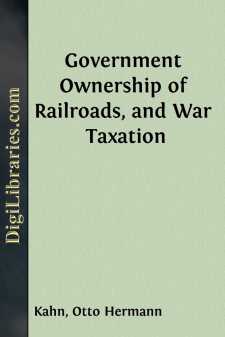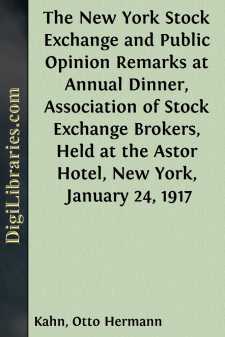Categories
- Antiques & Collectibles 13
- Architecture 36
- Art 48
- Bibles 22
- Biography & Autobiography 813
- Body, Mind & Spirit 142
- Business & Economics 28
- Children's Books 17
- Children's Fiction 14
- Computers 4
- Cooking 94
- Crafts & Hobbies 4
- Drama 346
- Education 46
- Family & Relationships 57
- Fiction 11829
- Games 19
- Gardening 17
- Health & Fitness 34
- History 1377
- House & Home 1
- Humor 147
- Juvenile Fiction 1873
- Juvenile Nonfiction 202
- Language Arts & Disciplines 88
- Law 16
- Literary Collections 686
- Literary Criticism 179
- Mathematics 13
- Medical 41
- Music 40
- Nature 179
- Non-Classifiable 1768
- Performing Arts 7
- Periodicals 1453
- Philosophy 64
- Photography 2
- Poetry 896
- Political Science 203
- Psychology 42
- Reference 154
- Religion 513
- Science 126
- Self-Help 84
- Social Science 81
- Sports & Recreation 34
- Study Aids 3
- Technology & Engineering 59
- Transportation 23
- Travel 463
- True Crime 29
Government Ownership of Railroads, and War Taxation
Description:
Excerpt
GOVERNMENT OWNERSHIP OF RAILROADS
Paternalistic control, even when entirely benevolent in intent, is generally harmful in effect. It is apt to be doubly so when, as sometimes occurs, it is punitive in intent.
The history of our railroads in the last ten years is a case in point.
In their early youth our railroads were allowed to grow up like spoiled, wilful, untamed children. They were given pretty nearly everything they asked for, and what they were not given freely they were apt to get somehow, anyhow. They fought amongst themselves and in doing so were liable to do harm to persons and objects in the neighborhood. They were overbearing and inconsiderate and did not show proper respect to their parent, i. e., the people.
But the fond parent, seeing how strong and sturdy they were and on the whole, how hustling and effective in their work, and how, with all their faults of temper and demeanor, they made themselves so useful around the house that he could not really get along without them, only smiled complacently at their occasional mischief or looked the other way. Moreover, he was really too busy with other matters to give proper attention to their education and upbringing.
As the railroads grew towards man's estate and married and begot other railroads, they gradually sloughed off the roughness and objectionable ways of their early youth, and though they did not sprout wings, and though once in a while they still did shock the community, they were amazingly capable at their work and really rendered service of inestimable value.
But meanwhile, for various reasons and owing to sundry influences, the father had grown testy and rather sour on them. He cut their allowance, he restrained them in various ways, some wise, some less so, he changed his will in their disfavor, he showed marked preference to other children of his. And one fine day, partly because he was annoyed at the discovery of some wrongdoing in which, despite his repeated warnings, a few of the railroads had indulged (though the overwhelming majority were blameless) and partly at the prompting of plausible self-seekers or well-meaning specialists in the improvement of everybody and everything—one fine day he lost his temper and with it his sense of proportion. He struck blindly at the railroads, he appointed guardians (called commissions) to whom they would have to report daily, who would prescribe certain rigid rules of conduct for them, who would henceforth determine their allowance and supervise their method of spending it, etc.
And these commissions, naturally wishing to act in the spirit of the parent who had designated them, but actually being, as guardians are liable to be, more harsh and severe and unrelenting than he would have been or really meant to be, put the railroads on a starvation diet and otherwise so exercised their functions, with good intent, doubtless, in most cases, that after a while those railroads, formerly so vigorous and capable, became quite emaciated and several of them succumbed under the strain of the regime imposed upon them....






